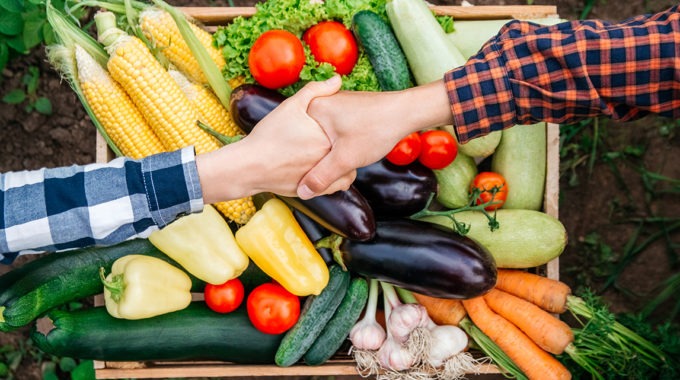A shared vision for a fairer food system
Consumers are hungry for connection. They want to know how and where their food is grown, and who produced it for them. But this yearning for connection goes both ways. Farmers also value knowing who eats the food they work so hard to grow and produce, and who uses it to create the products we eat. More growers and eaters are beginning to recognise the value of a local food system that builds and fosters that link, and places the benefit of consumers, food producers and the environment over profits. This has led to the establishment and ongoing success of a growing number of community-focused food enterprises which provide sustainably-produced food that’s been purchased at a fair price.
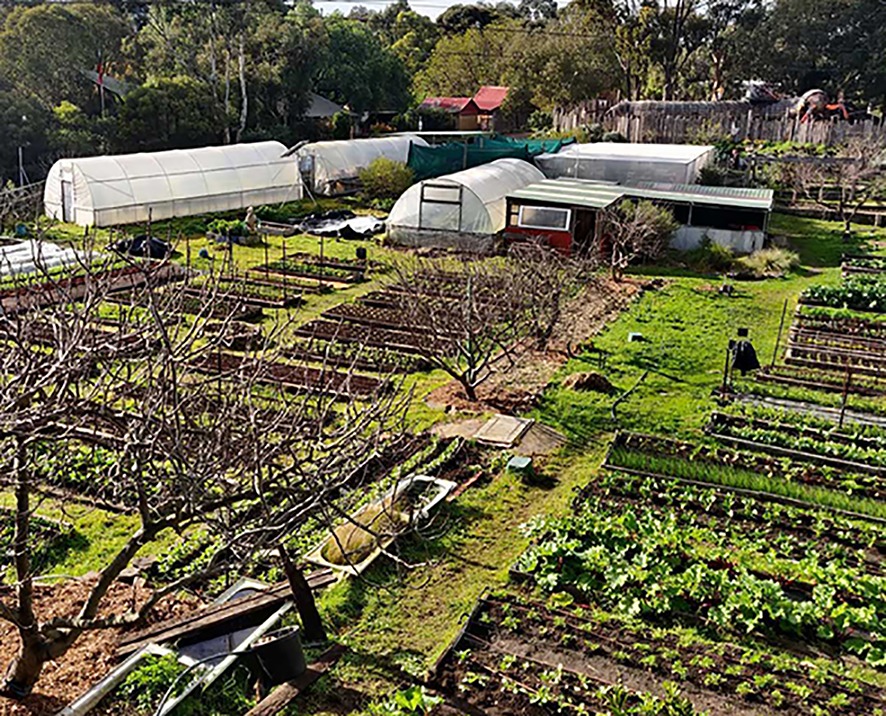
A growing movement
CERES (pronounced “series”) is a Melbourne-based environmental education centre, community garden, urban farm and social enterprise hub that’s providing locals with the opportunity to reconnect with the earth and each other, as well as the food supply chain. CERES’ social enterprises – which include an online grocery store, market gardens and nurseries – are designed to move food production and consumption away from globalisation and towards localisation. Their ongoing success is a clear indication of how eager consumers are to feel a closer connection with where their food comes from.
The organisation’s “mothership” – the CERES Environment Park – was born on the banks of the Merri Creek in East Brunswick. This former 10-acre rubbish tip site was transformed into a community garden and environmental education centre in the early 1980s.
“There was lots of community gardening, and people running their own chooks, cows and goats,” says Chris Ennis, General Manager of CERES Fair Food, the organisation’s online organic grocery service. “This slowly developed through the ’90s into a larger city farm where food was grown. Then there was a weekend organic grocery market, and that was before you get organics in many places. From there, it just grew and grew and grew.”
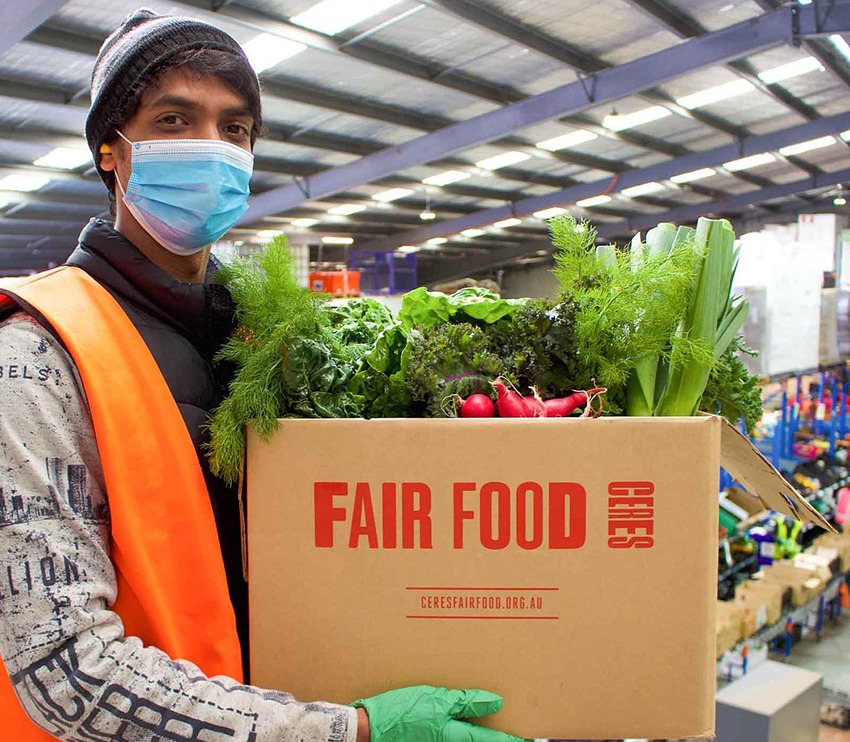
Let’s stick together
CERES Fair Food first began as a weekly staff vegie co-op at the CERES Environment Park. But word quickly spread, and soon CERES was supplying 10 co-ops around Melbourne’s inner-north. In 2009, this collection of co-ops was turned into an online store which now has 1500 weekly customers. Organic fruit and vegetables are sourced locally as much as possible, but produce is also sourced from organic farmers across Victoria, as well as other states. All profits are used to fund CERES’ educational programs.
“We now have roughly 150 growers, grocery makers and suppliers,” Ennis says. “Some of those relationships go back 20 years, since our early market days. We stick with our growers. If someone tells us we can get something cheaper, we won’t just run towards the cheapest price. We appreciate the relationship more than saving a few bucks.”
This loyalty doesn’t just benefit farmers when prices drop. By remaining true to their growers and paying a fair and reasonable price for their produce, come the end of the season when a food is scarce, CERES will be the business that growers choose to supply.
“During lockdown, Coles and Woolworths delivery services got swamped and basically crashed,” Ennis says. “Overnight, our customer numbers tripled. And thanks to our suppliers, because we’ve been sticking with them for all these years, we were the ones that got supply. They stood by us and made the extra effort to make sure that we had stock. And we got everything we needed, so we could make it through that crazy period.”
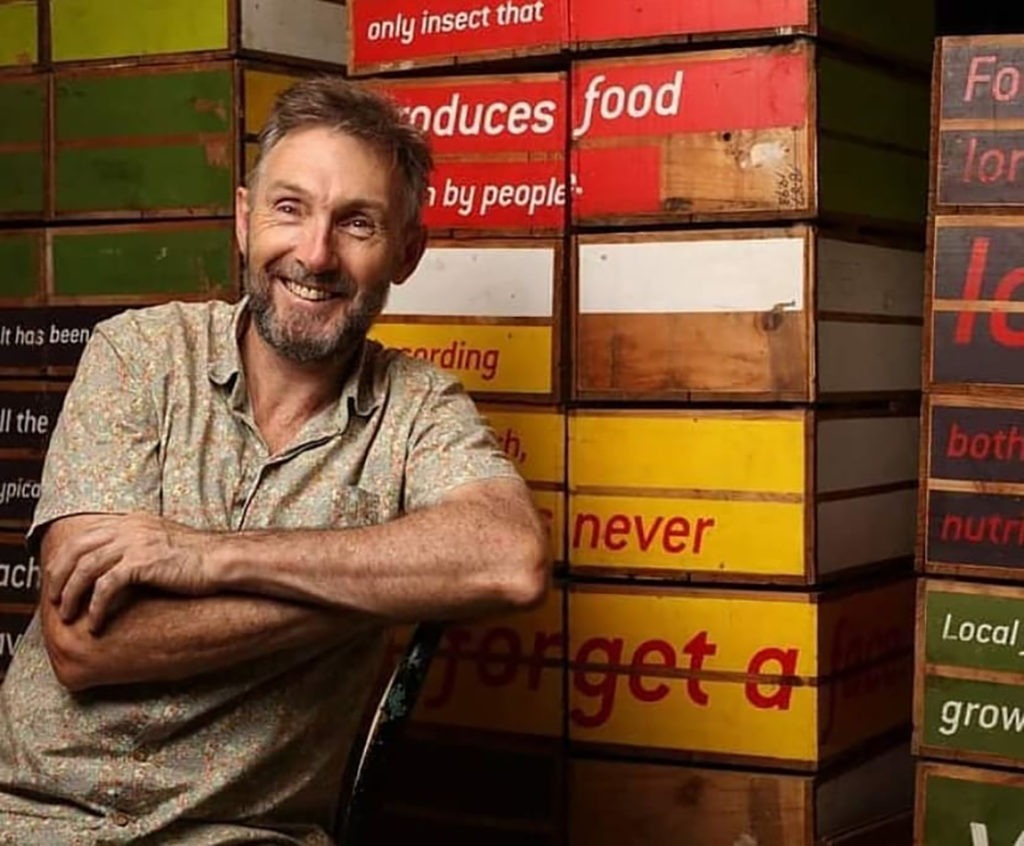
From loss to learning
Up in Brisbane, social enterprise Food Connect is also connecting farmers and consumers. The organisation was founded by former dairy producer Rob Pekin, who was inspired to pursue a different way forward for farming after losing his family’s fourth-generation dairy farm. Pekin began exploring the concept of community supported agriculture (CSA). This is a food system of production and distribution that directly connects farmers and eaters.
“I realised that people really wanted that connection with the farmer and where their food is grown,” he says. “For me, as a former commodity dairy producer, that was quite inspiring. It really resonated with me that there was this void. This was the very thing that made my life as a farmer not complete. Not knowing who drank my milk, not knowing what my milk was turned into. It really fired up my imagination.”
After learning all he could in both practice and theory, Pekin spent several years travelling the country and setting up CSA operations before he arrived in Brisbane. After giving a talk to a group of farmers about CSAs, several growers approached him to say they wanted to use these principles to set up their own local food operation that would provide their produce direct to consumers. A produce box trial was piloted in 2004, and it was an overwhelming success. In 2005, Food Connect was born.
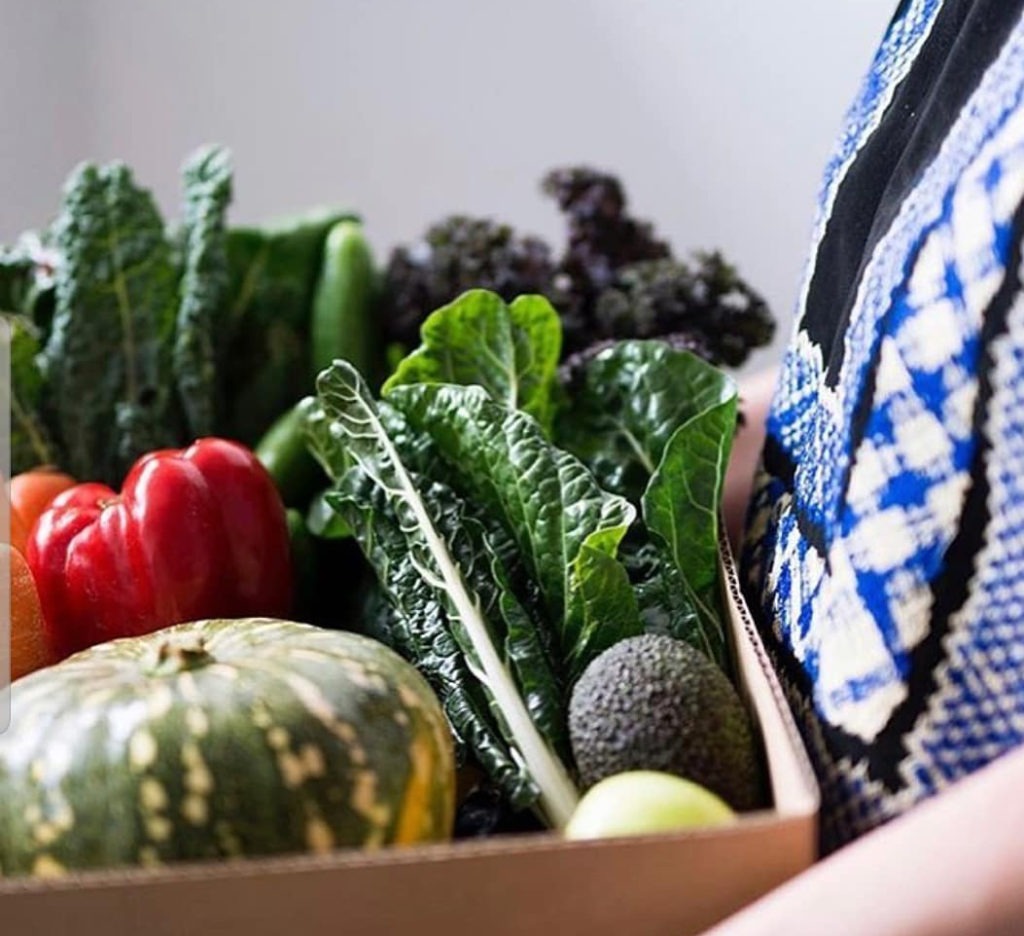
Fair food at a fair price
When Food Connect began its pilot trial, it was sourcing from a little over 20 farmers. Now, the operation has around 120 growers from across Brisbane, as well as about 40 makers who provide products such as bread, cheese and nut butters. All produce is grown using regenerative farming practices, and as all fruit and veg is locally grown and seasonal, consumers are guaranteed the freshest, most nutritious food.
Customers can choose either home delivery or a pick-up from a Food Connect “city cousin” – a central location where produce boxes are delivered for customers to collect. Food Connect also supplies to bulk buyers’ clubs, food co-ops, restaurants and cafes.
Just like CERES, Food Connect farmers are paid a fair price for their produce – about four times as much as they’d receive from the big retail chains. But the benefits of developing a fair local food system have offered growers more than just financial benefits.
“Price is important to them,” Pekin says. “But so is knowing that their produce is going to be sold as close as possible to where they picked it out of the ground. However, the biggest impact on the farmers has been the connection to the people who eat their food. We did some farm tours when we launched, and a lot of meetings with farmers and eaters. All the farmers were just so in love with the fact that these city folk were really interested; they really wanted to support them. And that was a novel experience for them.”
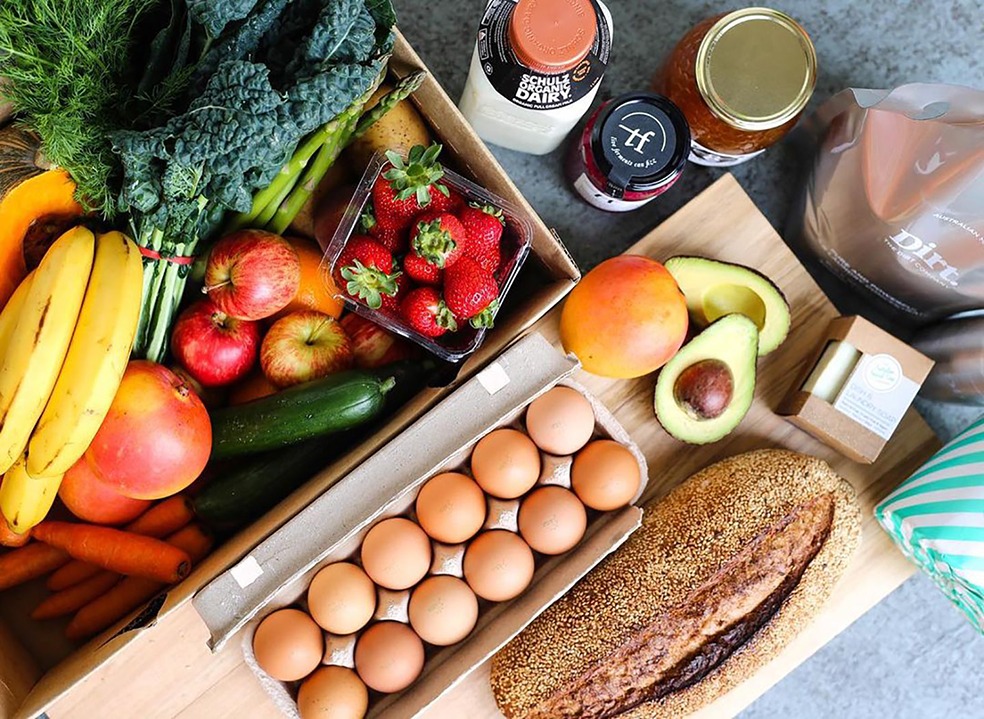
An eye on the future
Creating fairer food systems for growers isn’t just about benefiting farmers today; it’s also about ensuring that there will be a system in place to support the next generation.
“Right now in Victoria, there are all these young people growing in a little city plots, or sharing a bit of land on an established farmer’s place,” Ennis says. “We really try to support those growers by buying their produce so they can have a reliable source of income.”
More established farmers are generally older, and once an established farmer retires, it can leave a big hole in the market that can be difficult to fill. Ennis believes that by supporting tomorrow’s farmers today, the entire food system will ultimately benefit.
“We want to support that next generation,” he says. “Because eventually these young farmers will expand, and they’ll be the ones who’ll be our big suppliers in the future.
“If food retailers just play price, all you’re going to do is reduce the number of farmers that can survive. We’re all about the opposite – we need more farmers, and we need young farmers coming through. There’s got to be a pathway, or else suddenly there’s only two or three big farms producing a few types of food and that’s it. And that lack of diversity means there’ll be a lack of product. We want people growing wonderful, interesting things.”
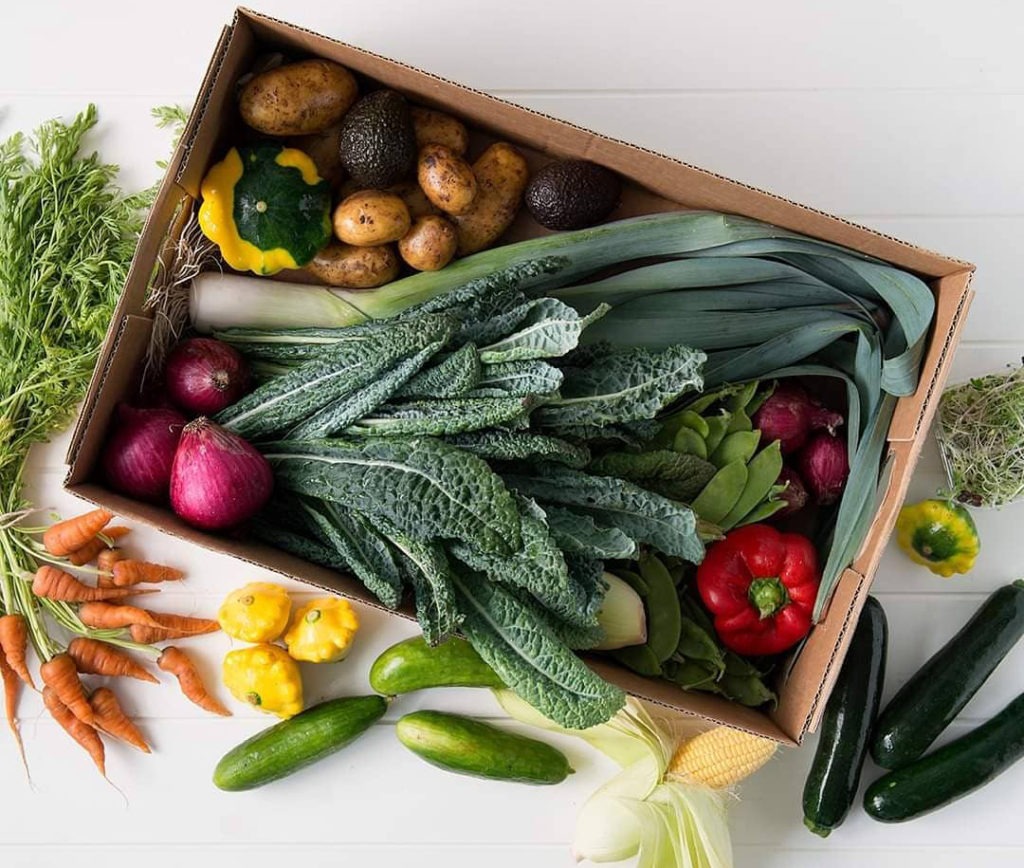
The way forward
Pekin believes that systems like Food Connect and CERES Fair Food are the right way forward for the future of food. Not just here in Australia, but around the world.
“We haven’t got any choice, really,” he says. “The cracks are starting to appear in the globalised food system. When you look at climate change, and those impacts coming down the road, investors we’re talking to are starting to see that Coles and Woolies are going to be stranded assets. That global food system isn’t going to be able to supply them.
“We want to divorce ourselves from market forces, so we’re not competing in a market system based on supply and demand. Because that’s a ridiculous concept. The failure in the food system is that food is treated like a commodity. We see it as a human right.”
Want to know more? You can check out CERES Fair Food at ceresfairfood.org.au, and you can find out more about Food Connect at foodconnect.com.au


